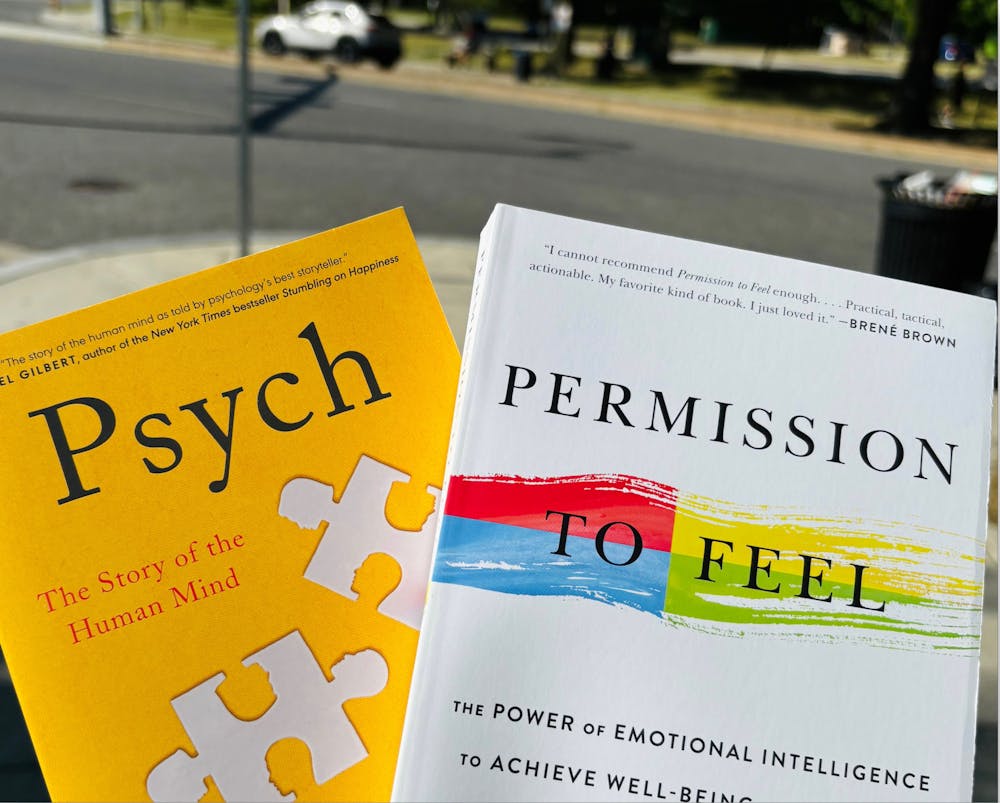
I remember locking my door, isolating myself away from the entire world. Sitting on the messily carpeted floor, my knees pulled up to my chest, crying into rolls of crumpled toilet paper. A few minutes later, I’d open my door and eat with my family at the dinner table like any other day. It was a seamless switch — a quick wipe of the eyes, a deep breath and the world went on as if nothing had happened.
I’ve done it in public, too. I remember going to the bathroom and hiding in a stall just long enough to wipe a few tears away. Then, I would compose myself, exit and rejoin my friends with a laugh. I’d mastered it: pretending that I was fine.
Because the general expectation from us humans is quite straightforward: We cannot display sadness. We shall not reveal our vulnerabilities and weaknesses. No, we must present ourselves to others as optimistic, happy and motivated: always driven, always okay.
But I’m not alone in this. Whether it’s friends in our social circles or the strangers we walk past on the street, we’ve all, at some point, become experts in hiding our true emotions. We’ve learned to put on a brave face, to hold it together, to smile even when our hearts are heavy.
This past summer, I started reading Permission to Feel by Marc Brackett, the founding director at the Yale Center for Emotional Intelligence. I wasn’t searching for answers, but the book gave them anyway. Brackett talks about his own struggle with emotions, sharing the story of when his uncle simply asked him, “How are you feeling?” That small act of genuine care changed his life. His uncle “truly wanted to hear the answer. Not judging [him] for what [he] felt. He just listened, openly and with empathy, to what [he] was expressing. He didn’t try to interpret [him] or explain [him].”
That line hit me. It’s so rare, isn’t it? When was the last time you were asked, “How are you feeling?” and truly felt the person wanted to hear your real answer?
I’ve lost count of how many times I’ve been asked the question without feeling the need to answer honestly. We never provide or expect an honest answer when we ask or are asked, “How are you?” It becomes a social norm, a meaningless phrase that doesn’t need to be answered. “I’m fine! What about you?” The words just roll off, like some unspoken agreement that no one will actually go beyond the surface. This has become the standard, especially during something as intense as freshman orientation week. I must have said, “I’m doing great!” at least a dozen times in those few days, but not once did I stop to reflect on whether I really meant it.
Perhaps, I didn’t.
The pressure to perform happiness, to present a put-together version of myself, is constant. I’ve learned over time to equate emotional vulnerability with weakness. The message was clear: get over it. Don’t be so sensitive. Move on. As if emotional pain had an expiration date, as if processing feelings were something you could just opt out of. So, I did what I thought was expected — I pushed through.
But reading Brackett’s words made me realize that I’d been doing myself a disservice. I’d been pushing my emotions away for so long that I’d forgotten how to fully experience them. I forgot to acknowledge the beauty in being human, the beauty of feelings. We’ve all been conditioned to manage our feelings by ignoring, pretending and disregarding them. Yet here was Brackett, a man who had felt despair, alienation and elation and who found freedom when someone finally acknowledged those feelings without judgment. That was his permission to feel.
We all deserve permission to feel deeply and embrace the full range of our emotions without fearing judgment. It’s okay to feel overwhelmed. It’s okay to be vulnerable. It’s okay to experience joy without reservation. But in a society that rewards emotional stoicism, it’s hard to break free from the script.
The truth is, I learned that acknowledging my emotions doesn’t make me weak. It makes me human. And when we ask each other, “How are you?” we should want the real answer at appropriate times. We should ask with intention as Brackett’s uncle did. That one question has the power to change everything because it shows that we care — truly, deeply care — about how the other person feels. Not in a passing, superficial way, but in a meaningful, connected way.
The next time someone asks me how I’m doing, maybe I’ll pause before I respond. Maybe I’ll take a moment to check in with myself, to figure out how I’m actually feeling before blurting out the default, “I’m fine.” And when I ask others, maybe I’ll do so with genuine curiosity. I’ll listen, really listen, to their answer.
Because we all need permission to feel. We need space to be human, to let our emotions exist in their full complexity without the burden of pretending. It is a practice that I’m still learning, but it is one I’m determined to keep trying.
In that small act of asking and listening, we allow each other to be seen. And sometimes, that’s all we really need.
Linda Huang is a freshman from Rockville, MD majoring in Biomedical Engineering.





